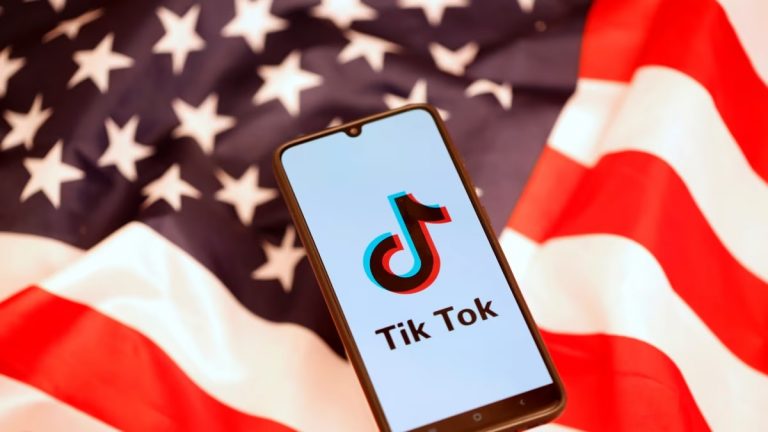
A federal appeals court on Friday upheld a law requiring China-based ByteDance to divest ownership of TikTok, citing national security concerns.
The ruling, handed down unanimously by a three-judge panel of the U.S. Court of Appeals in Washington, D.C., mandates that TikTok be sold by January 19, 2025, or face an effective ban in the United States. This decision puts the app’s future in jeopardy and leaves its parent company with only two viable options: appealing to the U.S. Supreme Court or seeking intervention from President-elect Donald Trump.
The contested law, signed by President Joe Biden in April 2024, requires ByteDance to sell TikTok or risk being barred from app stores and internet hosting platforms. The law was a response to bipartisan concerns over TikTok’s alleged ties to the Chinese government, with lawmakers claiming the app poses a significant national security threat.
Register for Tekedia Mini-MBA edition 19 (Feb 9 – May 2, 2026).
Register for Tekedia AI in Business Masterclass.
Join Tekedia Capital Syndicate and co-invest in great global startups.
Register for Tekedia AI Lab.
Attorney General Merrick Garland praised the court’s ruling, calling it a critical step in protecting U.S. interests.
“Today’s decision is an important step in blocking the Chinese government from weaponizing TikTok to collect sensitive information about millions of Americans, covertly manipulate content, and undermine our national security,” Garland said.
Judge Douglas Ginsburg, writing for the court, described the law as carefully crafted to address national security threats while respecting constitutional boundaries.
“The U.S. government provided persuasive evidence demonstrating that the Act protects national security in a manner consistent with the Constitution,” Ginsburg wrote.
The court found no merit in TikTok’s claims that the law violates the First Amendment, the Fifth Amendment, or protections against unlawful takings and bills of attainder.
TikTok has long been under scrutiny for its data practices and alleged links to Beijing. While the app denies sharing data with the Chinese government, critics argue that its parent company’s location in China makes it subject to the country’s stringent surveillance laws.
Congressional Republicans and Democrats have repeatedly expressed alarm. Rep. Troy Balderson (R-Ohio) earlier described TikTok as a tool for espionage.
“TikTok is a surveillance tool used by the Chinese Communist Party to spy on Americans and harvest highly personal data,” he said.
The court’s ruling further noted that TikTok has never categorically denied accusations of content manipulation at the direction of Chinese authorities.
TikTok’s Fight and Constitutional Concerns
TikTok has vowed to continue its legal battle, describing the ban as an unconstitutional restriction on free speech. The platform, which has 170 million active users in the U.S., asserts that banning it would silence millions of voices.
“The Supreme Court has an established historical record of protecting Americans’ right to free speech, and we expect they will do just that on this important constitutional issue,” TikTok spokesperson Michael Hughes said.
The American Civil Liberties Union (ACLU) echoed TikTok’s concerns. Patrick Toomey, deputy director of the ACLU’s National Security Project, criticized the ruling.
“Banning TikTok blatantly violates the First Amendment rights of millions of Americans who use this app to express themselves and communicate globally. The government cannot shut down an entire communications platform without concrete evidence of imminent harm,” he said.
TikTok has announced plans to file an appeal with the U.S. Supreme Court. However, there is no guarantee the court will agree to hear the case.
Turning To Trump
As ByteDance faces a ticking clock, attention has turned to President-elect Donald Trump. While his stance on TikTok has fluctuated, Trump has options to delay the ban or offer a solution to ease national security concerns.
During his first administration, Trump pushed for TikTok’s divestment but softened his rhetoric after meeting billionaire Jeff Yass, a Republican donor and investor in ByteDance. Yass’s trading firm, Susquehanna International Group, holds a 15% stake in ByteDance, creating speculation about Trump’s intentions.
Trump could grant ByteDance a 90-day extension, provided the company demonstrates significant progress toward divestiture. Alternatively, he could explore other solutions to address security concerns, such as adopting stronger data protection measures under ByteDance’s proposed Project Texas initiative.
However, Trump’s position remains uncertain. While campaigning, he criticized the Biden administration’s push to ban TikTok, urging voters to support his presidency to save the app.
“If you like TikTok, go out and vote for Trump,” he said in a September post on Truth Social.
Racing Against Time
If ByteDance fails to sell TikTok by January 19, 2025, app store companies such as Apple and Google will be required to remove TikTok from their platforms. Additionally, internet hosting providers will be barred from supporting the app, effectively rendering it unusable in the United States.
The ruling emphasizes that TikTok users will bear the consequences of Beijing’s hybrid commercial threats to U.S. national security.
“This decision has significant implications for TikTok and its users,” the court wrote. “But this conclusion is supported by ample evidence that the Act is the least restrictive means of advancing the Government’s compelling national security interests.”
The outcome of this case could redefine how the U.S. government regulates foreign-owned platforms, particularly those deemed security risks. If the Supreme Court declines to hear the case or rules against TikTok, the app’s departure from the U.S. market will leave a significant void for its users and influencers.



